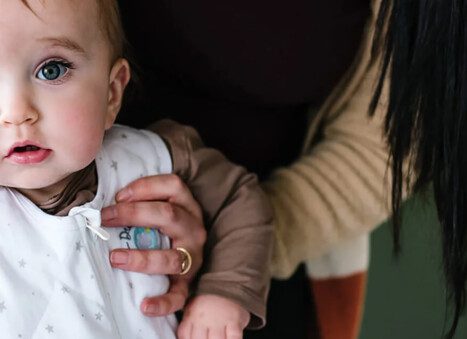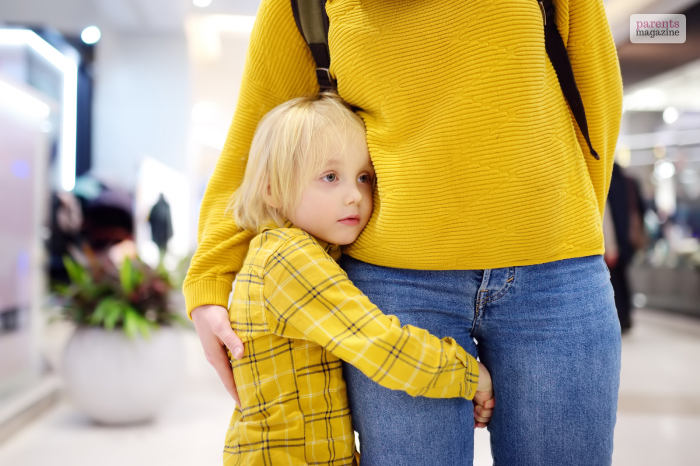
How to Deal with Separation Anxiety in Babies & Toddlers
How to deal with separation anxiety in babies?
When you were ready to leave for work, your child wouldn’t let you go. If this is a scene repeating every day, then your child is dealing with separation anxiety.
It’s common among infants and toddlers. However, parents can include several tips and practices to deal with it recurring daily.
In this article, I have listed helpful tips to help you deal with separation anxiety in babies. Keep reading.
What is Separation Anxiety in Babies?
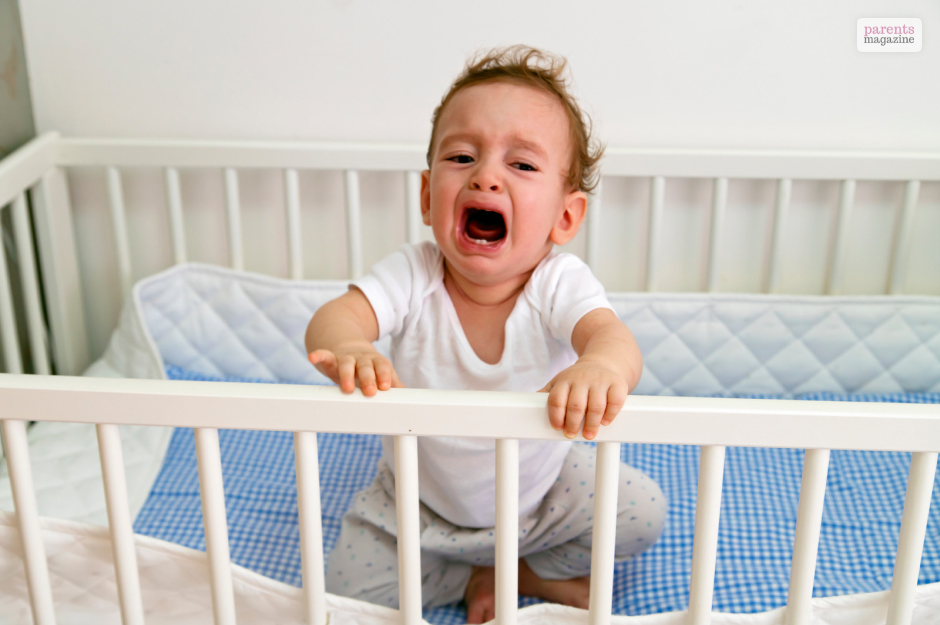
Separation anxiety is the feeling of a young child who feels that there’s caregiver is leaving them. Some examples would be leaving them in the other bedroom or leaving them at the daycare. Babies and toddlers experiencing separation anxiety tend to become clingier and feel more attached to their caregivers. They often cry when their caregivers leave them.
Babies start to show signs of separation anxiety when they are 4 to 5 months old. However, it grows and reaches the maximum level when they are nine months old. However, separation anxiety doesn’t happen to some babies when they are infants. It can appear at a later stage when they are a toddler. For some children, it doesn’t happen at all.
However, when they grow up, their separation anxiety goes away. It suggests that over time, the child has grown a strong and firm bond with their caregiver, and it’s one of the most important aspects of dealing with separation anxiety throughout their life. It’s one of the most important aspects of life as well.
Practical Strategies for Parents to Manage Separation Anxiety
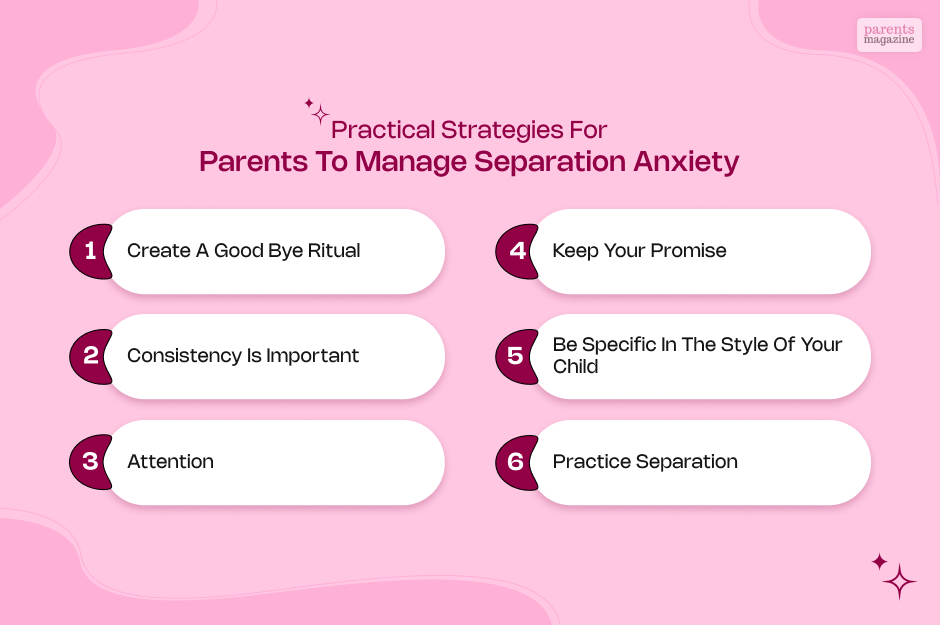
As a parent or a caregiver, you have the option to make it easier for your little one to cope with separation anxiety. Continue reading the following point if you want to stretch a helping hand to your baby –
Create a Good Bye Ritual
No matter what your way of saying goodnight or goodbye to your little one, try to make extra effort. Give them triple kisses at the chubby or provide them with a special blanket when you leave. Don’t make the leaving feel like leaving. Give your little one their toys or their favorite blanket to help them hold on to the attachment.
Consistency is Important
The best way to reduce the heartache your little one has from the separation is by building a routine. Make a routine of goodbye kissing or a little gesture of love you show. This way, you can build trust with the baby and leave them with a fulfilled heart that doesn’t worry about separation.
Attention
Give your child full attention and your love. Infants and toddlers crave attention from their caregivers and parents. Give them full attention before you finally separate from your little baby. Even with all the attention, your little one would be very clingy and wouldn’t want to let go of you. The best way to transition is to leave them with a promise. You could say that you’ll be back soon or bring them some presents.
Keep Your Promise
How do you reduce separation anxiety in babies? If you have promised them something, it’s best to hold on to that promise. When you hold on to your promise, your child becomes more confident and can stay with your absence. Whether it’s a time you promised or a gift you said you’d bring, hold on to that. It will help them build a practice to trust you more.
Be Specific in the Style of Your Child
Babies may not have a specific timeframe in mind. They keep track of time by lunch, bedtime, snack time, or when it’s the time for an afternoon soccer game with you. So, when you’re making a promise to your baby that you’ll return by 3:00 pm, make sure to tell it to them in their own style. Instead of mentioning the specific time, tell them that you’ll be back by the afternoon you play together. Again, don’t forget to
Practice Separation
The best way to deal with separation anxiety in babies is by practicing separation. When your child starts to grow older, you can grow the space slightly longer so that they have other people to rely on as well. A good way to practice separation would be by sending them off to their grandmother’s home. You can schedule playdates or allow other family members or their friends to take up the space of time they use to get with you. This way, you can give your child the chance to thrive and grow in your absence.
Long-term Tips to Manage Separation Anxiety
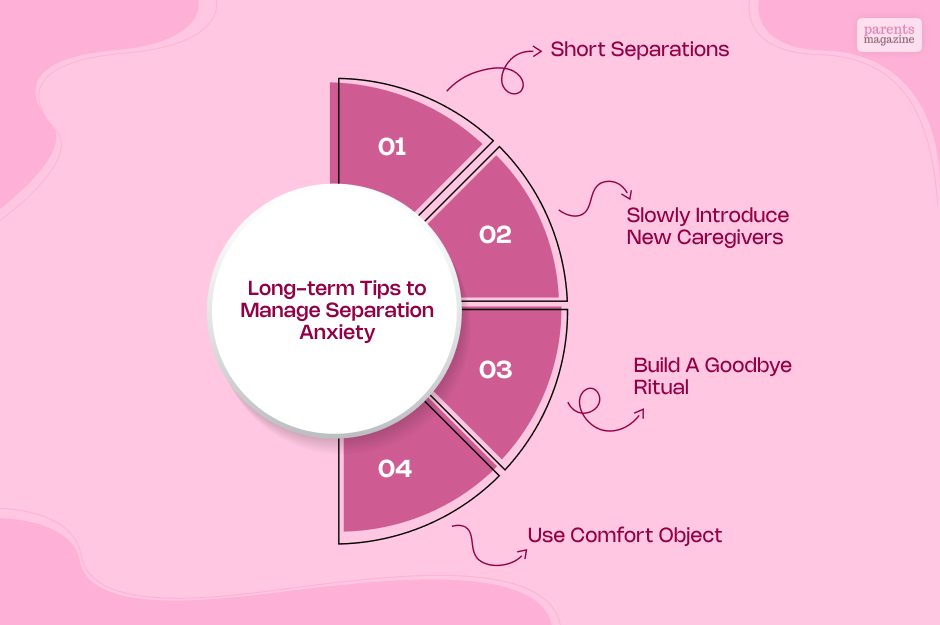
You can follow the tips we have given above to help your little one deal with separation. While you keep up with those practices, you can also follow other practices that make it easier for them to deal with your absences. Here are some pointers you can keep in mind.
Short Separations
Keep your baby with trusted caregivers. Create a list of short separations. Leave them with caregivers for a brief period. This way, you can have time to adjust your presence and absence with the baby.
Slowly Introduce New Caregivers
You can also have a new caregiver, or a babysitter stay with the baby. This will help them get acquainted with others in the family or their friends.
Build a Goodbye Ritual
Yes, we are repeating this point. But there’s a good reason. A goodbye ritual always builds a sense of security and gives your child assurance about when you will arrive. Practicing a goodbye ritual helps your child deal with anxiety in the long term.
Use Comfort Object
Comfort objects help your little one deal with your abscess. It works as a short-term distraction for your baby. They can hold on to their favorite toy, doll, or blanket you gifted them.
Common Pitfalls and Mistakes Not to do
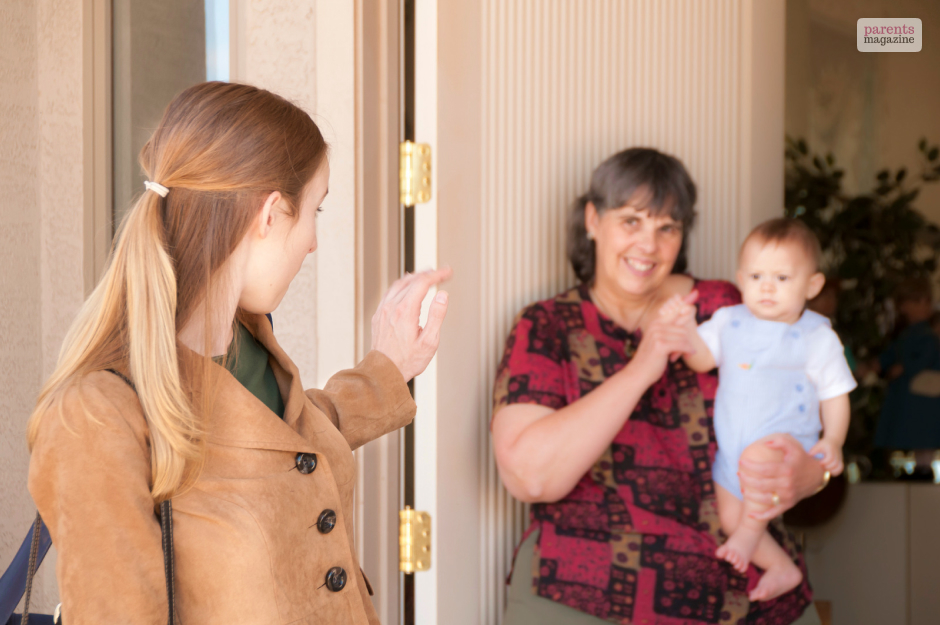
If your child has separation anxiety, you can use the above-mentioned tips to deal with it. However, there are certain things you must avoid as a parent or a caregiver. Here are some of those things –
Don’t Sneak Away
Your child doesn’t want to look the other way and find you gone. Practicing it increases their separation anxiety even more. Say goodbye to your little one without sneaking away behind their back.
Short Goodbyes
Don’t resort to short goodbyes. Longer goodbyes give you a longer transition time. Leave your little one with a quick and positive goodbye. When you make your departure, it reduces their chances of feeling left out.
Don’t Leave them Tired & Hungry.
Don’t leave your baby when they are tired and hungry. When you leave your baby tired and hungry, it makes the feeling of separation anxiety in babies even stronger.
When to Seek Professional Help
Separation anxiety in babies is common, and it starts around the time when your child is 8 months old. However, there are different ways of dealing with it and helping your child to feel more secure. However, it’s also common for your baby to feel left out. Sometimes, it might require intervention from an expert. If your baby is showing the following signs, consult an expert for better suggestions –
- When it’s causing your little one more distress.
- Your child stays upset for a long period.
- When it continues for weeks.
- Your child starts to withdraw from friends and family.
- The child starts showing age-inappropriate clinginess and trauma.
Don’t hesitate to consider medical help if separation anxiety is getting more difficult for your baby. Hopefully, this article helped you. Let us know your feedback through the comment section. Thank you.
You May Like To Read :
Already have an account?
Sign In
Create your account
User added successfully. Log in







